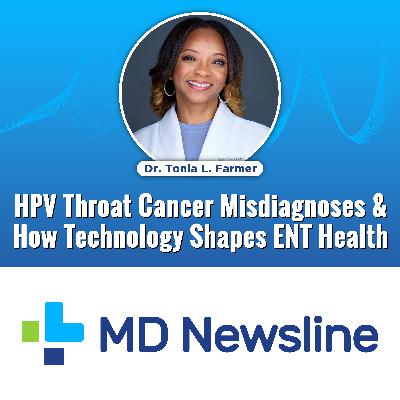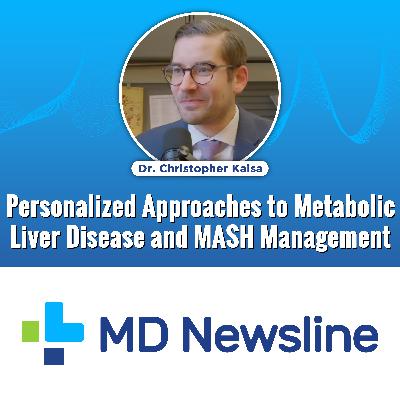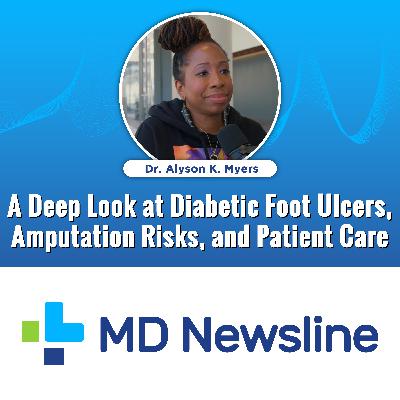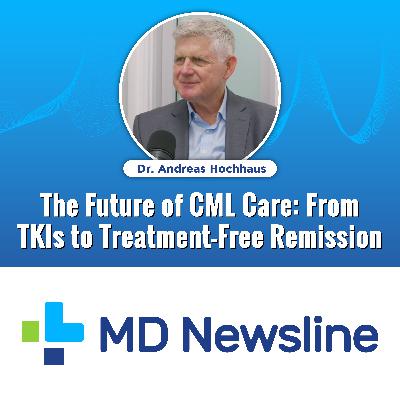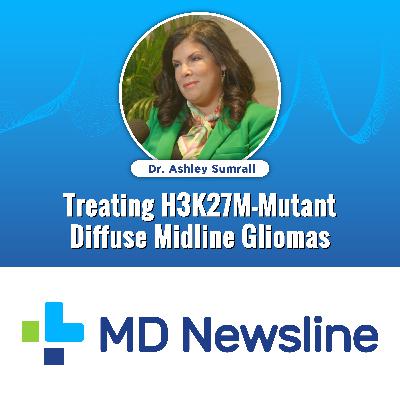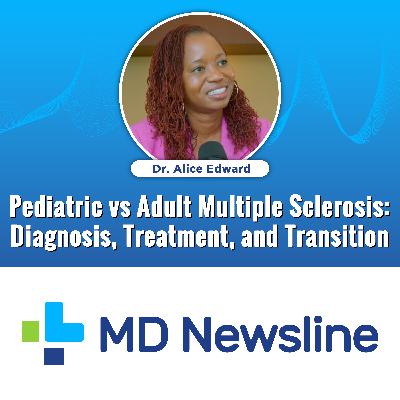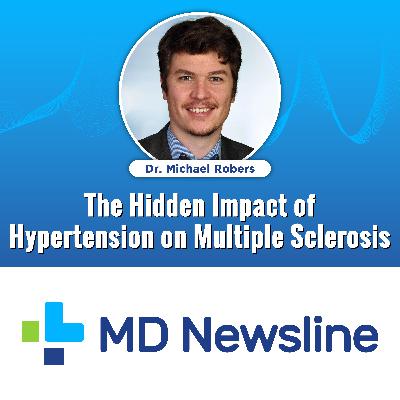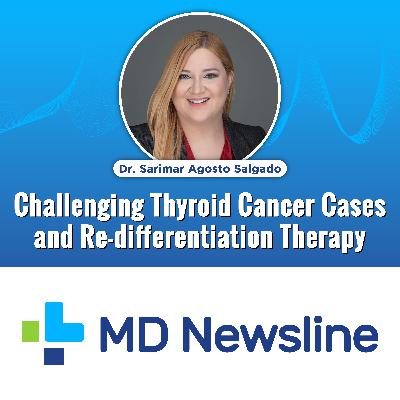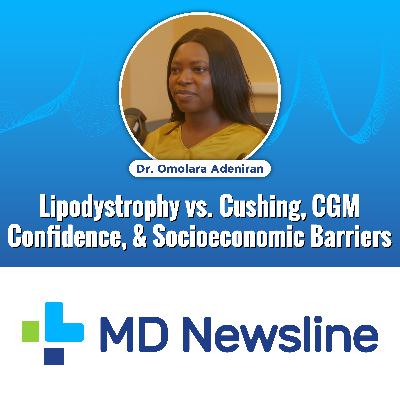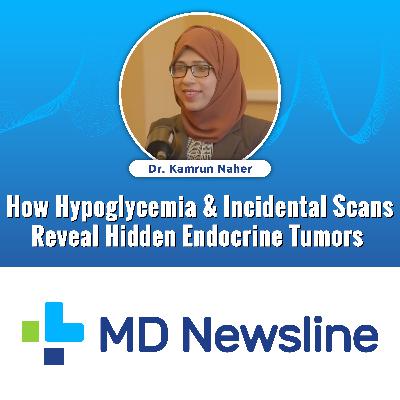HPV Throat Cancer Misdiagnoses And How Technology Shapes ENT Health
Description
In this episode of MD Newsline, Dr. Tonia L. Farmer, a board-certified otolaryngologist and head & neck surgeon, discusses the gaps in ENT care, the growing impact of HPV-related cancers, and the importance of education and early detection in improving outcomes—particularly for underserved communities. Drawing from years of practice, Dr. Farmer explores how social, behavioral, and environmental factors shape ENT health and shares insights on emerging research and technologies revolutionizing the field.
Episode Highlights
Addressing Racial and Socioeconomic Disparities
Dr. Farmer highlights the persistent disparities in ENT care, especially among Black patients, who often present with more advanced head and neck cancers. She attributes these gaps not only to mistrust in healthcare systems but also to delayed care-seeking behaviors and limited access to specialists. By increasing community education and early screening, she emphasizes the potential to close these gaps.
Lifestyle Trends and HPV-Related Throat Cancers
Dr. Farmer discusses the rise of HPV-related oropharyngeal cancers, noting how sexual behavior trends—including unprotected oral sex and multiple partners—have contributed to a surge in HPV-16–linked head and neck cancers. She stresses that while most HPV infections clear naturally, persistent infections can remain dormant for decades, leading to cancer later in life. Her message is clear: education and vaccination are key preventive tools.
Recognizing Early Symptoms and Common Misdiagnoses
Many patients miss early warning signs of throat cancer—such as persistent sore throat, voice changes, unilateral ear pain, or lumps in the neck. Dr. Farmer explains that these symptoms are frequently mistaken for minor infections or TMJ disorders. She urges primary care providers to be aware of these red flags to ensure timely ENT referrals and faster diagnosis.
Emerging Research and Technological Advances
Dr. Farmer shares her excitement about ongoing research in oral HPV testing and tinnitus management—including potential implant technologies that could reduce chronic ringing in the ears. She also discusses how robotic-assisted surgery is transforming head and neck procedures and how AI may soon reshape diagnostics and patient engagement.
Environmental and Social Impacts on ENT Health
Environmental issues, such as air pollution from wildfires, chemical spills, and urban exposure, are increasingly linked to respiratory and sinus disorders. Dr. Farmer notes how such factors exacerbate conditions like sinusitis and chronic throat irritation, especially in vulnerable communities.
The Power of Education and Social Media
Beyond her clinical work, Dr. Farmer uses social media as an educational platform to spread accurate ENT health information. She believes digital outreach plays a crucial role in combating misinformation, empowering patients, and improving public understanding of ENT health.
Key Takeaway
Dr. Tonia L. Farmer emphasizes that early education, lifestyle awareness, and preventive care are vital in reducing ENT health disparities. Through research, technology, and public engagement, clinicians can help patients recognize symptoms earlier, make informed health choices, and improve outcomes across diverse populations.
Resources
Website: https://mdnewsline.com/
Newsletter: https://mdnewsline.com/subscribe/
Connect with Dr. Tonia L. Farmer: Here

